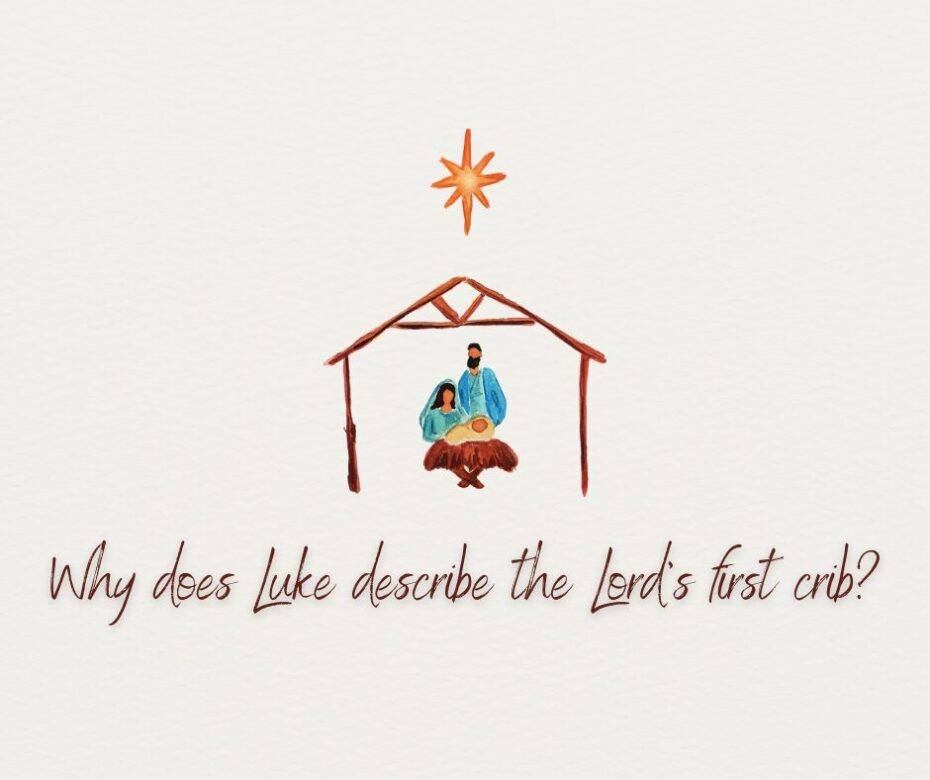We are all familiar with the fact that Jesus was placed in a manger after He was born. I think most of us think of a small wooden structure in which owners of animals would place hay for those animals to eat. Church tradition tells us that Jesus was born in a cave and that only animals slept there.
There are differences of opinion, however. I have read that the inn may have been a kind of communal dwelling place for people who were traveling. This inn would have had mangers for feeding the animals that accompanied these visitors. Luke may be saying that the place was packed because of all the people coming to register in Bethlehem. One of the mangers associated with this inn acted as a bed for the newborn Child.
Others suggest that the inn was like a guest room in a relative’s home. It was filled with other related travelers, so Mary and Joseph stayed in an adjacent, less accommodating room that had a manger for the animals of the owner.
These suggestions paint a picture a bit less bleak than some of our Christmas traditions. Perhaps, after all, a heartless innkeeper didn’t kick Mary out into the snow to live with the animals in a cave. We are too removed from that culture to perfectly understand all the details. But one thing is perfectly clear: The Lord had a humble beginning. A manger—whether made of wood or stone, we don’t know—served as a makeshift crib after His birth.
Luke wrote the Gospel to a man named Theophilus (1:3). The title Luke gives him tells us Theophilus was probably a government official. The ruler of the massive and powerful Roman Empire was Caesar Augustus. It was he who had ordered everybody to register, for the purpose of paying taxes, in their hometown (2:1). Theophilus would have been very familiar with Caesar’s prestige and honor. Later, Roman citizens would consider these rulers as gods. In the opinion of the people, men with as much power as the Caesars possessed were like gods on Earth. When these rulers died, they would join the pantheon of these gods. Even during the Caesars’ lifetimes, many cities had temples that paid homage to them.
Compare that to the birth of Christ. A son born to Caesar would be considered a son of a god. I don’t know what kind of crib and mattress would have been fitting for such a person, but I know it wasn’t a manger. I picture gold and satin being part of the scene.
But Luke tells us that when THE Son of God was born, that was not the case. The bed of Caesar’s son would have reflected who he was and the throne he would one day occupy. Jesus was the King of Kings. His first bed did not reflect His worth, nor the eternal throne He will one day sit upon.
Theophilus was a believer. I guess that as a Roman official, he was scandalized when he first heard where the Son of God was placed when He was born. Theophilus would learn, however, that this King was not like the earthly kings with whom he was familiar. Christ humbled Himself. He came to serve us (Mark 10:45). This King, at the very beginning of His life, set an example to teach us not to think too highly of ourselves (Rom 12:3).
I am not smart enough to know exactly what the inn was like the night Jesus was born in Bethlehem. I don’t know what the manger looked like. But I know they were not worthy of the One who spent the night in them.
Luke describes the circumstances of the Lord’s birth. If we simply look at His first bed, the message is clear: Make me humble like Him.


